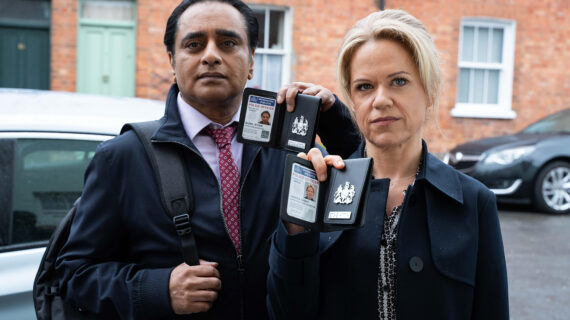Zac Schultz:
Turning now to international news, the United States is watching as an army from Turkey is attacking our allies, the Kurds. To help us understand why and what if anything our Congressional delegation can do about it, we’re joined by Andrew Kydd, professor of political science at the University of Wisconsin. Welcome. Thanks for being here.
Andrew Kydd:
Thanks for having me.
Zac Schultz:
As of last week the Kurds were our allies in the Middle East and Syrian and were guarding the remnants of ISIS. What geo-political sense does it make for us to back off and let them be bombed by Turkey?
Andrew Kydd:
Well, a lot of people are critical of that move and think it doesn’t make much geo-political sense. The rationale from the Trump administration has been that the president wants to get American troops out of the Middle East in general. He thinks our involvement in the Middle East has been a mistake. So he has wanted over the years ever since he started in office to withdraw U.S. forces from the region and in particular from Syria, which he threatened to do back in December of last year and now has gone ahead with in the past couple days.
Zac Schultz:
Traditionally, Congress plays a role in acts of war and we’ve heard denunciations from Democrats, a lot of silence from Republicans. I should say Green Bay Republican Congressman Mike Gallagher wrote on Twitter that this does undermine our credibility in the region. But what role does Congress have to play? They can — can they stop him from doing anything like this?
Andrew Kydd:
They probably can’t stop him from doing it. What they’re trying to do at this point is to pass a bill, a resolution at least, imposing sanctions on Turkey for doing this and try to confront the president with his choice of vetoing a bill that would probably get bipartisan support in the Senate, including from Republicans, or not. And if he were to sign it, then the United States would be imposing sanctions on Turkey for doing something that President Trump had given them the green light to do, mainly to invade northern Syria. So that would pose a bit of a dilemma for the president.
Zac Schultz:
What are the long-term consequences of abandoning an ally like the Kurds?
Andrew Kydd:
A lot of people are worried that this will undermine American credibility, not just in the Middle East, in Syria, but around the world in other circumstances as well if the United States can just, as a result of a phone call with a particular leader, reverse years of policy in this case. We’ve been supporting this particular Kurdish group very intensively ever since 2015 in the struggle against the Islamic State. But if we can just spin on a dime and abandon anyone who has fought with us, lost tens of thousands of lives in a cause that we shared with them, that’s creating worries in other countries as well. Other allies who depend on us such as Israel, Taiwan, to some extent, South Korea are going to look at that and be really scared in some sense by the inconstancy of American policy. I think that’s what a lot of people are worried about.
Zac Schultz:
Isn’t that to be expected in a democracy where we change parties and leaders that quickly, every four years or perhaps sooner thru impeachment? Could this shift again if there’s a new leader in the White House, change how we’re interacting with these allies? Can we get these relationships back?
Andrew Kydd:
We could. There’s a good old saying that it takes a long time to build trust and it can be destroyed in a moment. So it may prove more difficult to restore that trust if it is damaged through these incidents. And other countries I think will have to look at the United States from now on and wonder what is the sort of range of American policy going to be. Previously, I mean you can exaggerate it but there was a certain consensus about certain commitments on the part of the United States. Certainly to our NATO allies, to Israel, to South Korea, and the president has been really questioning those commitments and complaining that the Europeans are free riding off of us. The same with the South Koreans and the Japanese. And generally seems to have a pretty strong anti-alliance point of view. If that’s going to be become dominant in the Republican Party, that’s going to be a big, big shift.
Zac Schultz:
We’ll have to leave it there. Andrew Kydd, thank you for your time today.
Andrew Kydd:
My pleasure. Thanks.
Search Episodes
Related Stories from PBS Wisconsin's Blog

Donate to sign up. Activate and sign in to Passport. It's that easy to help PBS Wisconsin serve your community through media that educates, inspires, and entertains.
Make your membership gift today
Only for new users: Activate Passport using your code or email address
Already a member?
Look up my account
Need some help? Go to FAQ or visit PBS Passport Help
Need help accessing PBS Wisconsin anywhere?

Online Access | Platform & Device Access | Cable or Satellite Access | Over-The-Air Access
Visit Access Guide
Need help accessing PBS Wisconsin anywhere?

Visit Our
Live TV Access Guide
Online AccessPlatform & Device Access
Cable or Satellite Access
Over-The-Air Access
Visit Access Guide
 Passport
Passport

















Follow Us